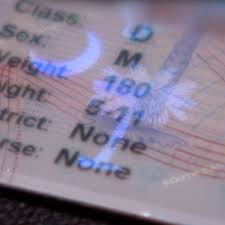The Lure of Fake IDs: Exploring Underlying Motives
The Lure of Fake IDs: Exploring Underlying Motives
Fake IDs have become a common tool for young people seeking to gain access to experiences that are restricted by age restrictions. While the legal aspects of using fake IDs are important, there are many social, psychological, and personal motivations that compel individuals to engage in this behavior. By focusing on these factors, we can better understand the reasons behind the widespread appeal of fake IDs and how they fit into the broader context of youth culture, social dynamics, and personal growth.
1. Access to Restricted Venues and Events
One of the most obvious and compelling reasons why many minors obtain fake IDs (such as Indiana fake IDs, North Carolina fake IDs, or Ohio fake IDs) is the desire to enter age-restricted venues and attend events reserved for adults, such as bars, nightclubs, concerts, and certain festivals, which often have strict age policies, often requiring attendees to be 18 or 21 years old. They even try to create scannable fake IDs from other states to make them more difficult to identify. For many young people, these spaces represent not only entertainment, but also the opportunity to connect with friends, enjoy social freedom, and experience the excitement of nightlife. Having a fake ID allows them to attend these social events and fully participate in social life.












For people living in urban environments, especially cities like New York, nightlife is an integral part of social interaction. Being excluded from these experiences because of age can feel isolating, and the social advantages of using a fake ID are clear. It’s not just about having fun; it’s about fitting into the social fabric and feeling part of a group.
2. Social Inclusion and Peer Influence
Another important motivation for using a fake ID is the desire for social inclusion. Fear of missing out (often referred to as FOMO) is a powerful psychological driver that affects many young people. Minors may feel left out when their friends regularly attend age-restricted events or visit certain venues. The pressure to participate in these shared experiences is immense, which often leads individuals to seek out fake IDs as a solution.
The importance of fitting in with peers cannot be overstated. Identity and group belonging are crucial in youth culture, and not having the means to participate in social activities can lead to feelings of exclusion. Fake IDs allow people to align with their friends and be included in the social activities that define their social group, ensuring they are not left behind.
3. Enhanced College Experience
For many students, college represents an important period of growth, exploration, and independence. This is often the first time a young person has lived away from home, and with this newfound freedom comes the opportunity to explore different aspects of life, including nightlife, social events, and other activities that may require proof of age. Participating in these activities is often seen as an important part of the college experience, and a fake ID can enhance this experience by allowing easy access to these social environments.
Many students view college as a time to try and experience things they have never had the opportunity to do before, whether it be joining a club, going to a bar with friends, or exploring the local nightlife. Fake IDs become a tool to remove barriers, allowing students to fully immerse themselves in this phase of their lives. By gaining access to these experiences, students will feel more integrated into the social fabric of the college community.
4. Convenience and Avoiding Embarrassment
The social pressure to drink, especially at college or youth social gatherings, can often lead to uncomfortable situations for minors. Whether it is a casual family gathering, dinner with friends, or a large social event, alcohol often plays a large role in these gatherings. For those without a valid ID, not being able to participate in social events can lead to awkwardness or even embarrassment.
Fake IDs help avoid these situations because individuals can purchase alcohol or gain access to venues without any hassle. It provides a convenient way to navigate social situations where drinking is required and ensures that minors do not feel uncomfortable or conspicuous because of their age. This ease of participation is a big factor in the decision to use a fake ID, as it allows for smoother interactions in social situations.
5. Early Independence and Exploration
Many young people view obtaining a fake ID as a symbol of early independence. It provides an opportunity to experience adulthood before the law allows, giving a glimpse into the freedom and responsibility that comes with maturity. For many, this premature independence is appealing because it allows them to decide where to go, what to do, and how to interact with the world on their own terms, without being limited by age restrictions.
This desire for autonomy and exploration is a natural part of adolescent growth. Fake IDs are seen as tools to facilitate this process, allowing young people to make their own choices and assert their independence in ways they might not otherwise be able to. For some, it’s less about the actual activities than it is about the sense of control and freedom that comes with choosing to engage in them.
6. Build Confidence in Social Situations
For some, using a fake ID is not just about gaining access, but about building confidence. The act of successfully using a fake ID can bring a sense of accomplishment and confidence, especially in social situations that might otherwise feel intimidating or unapproachable. This boost in confidence can spill over into other areas of life, helping people feel more comfortable and confident in social interactions.
For those who may suffer from social anxiety or insecurities, being able to use a fake ID and seamlessly blend into a social setting can boost their self-esteem. This gives them a sense of autonomy and control in environments where they might otherwise feel uncomfortable, helping them develop the confidence they need to navigate a variety of social situations with ease.
7. Socializing and Social Connections
Age-restricted venues such as bars, clubs, and concerts are often hubs for socializing and networking. These spaces offer opportunities to meet new people, form friendships, and even make professional connections. For young people eager to expand their social circles, fake IDs become a tool to gain access to these important social networks earlier than usual.
Socializing is a key aspect of personal and professional growth, and being able to attend events or venues where meaningful connections can be made is very appealing. Whether it’s building friendships, meeting potential business contacts, or simply expanding one’s social network, gaining access to these venues with a fake ID can open up a world of possibilities.
8. Lifestyle and Image
In some cases, using a fake ID is more than just about gaining access to restricted spaces—it’s about projecting a certain lifestyle or image. Many young people are attracted to the idea of living a sophisticated, adult life, and being able to frequent certain venues plays an important role in achieving that image. In cities where status and appearance are highly valued, being able to participate in the same activities as older peers helps young people feel more mature, sophisticated, and in line with the lifestyle they aspire to.
This desire to project a particular image is particularly common in environments where social status is valued. For some, fake IDs are more than just a means to an end, they are a symbol of the lifestyle they want to embody—a life of independence, freedom, and maturity.
Conclusion
Fake IDs not only provide young people with the opportunity to participate in age-restricted activities; they also provide a means to assert independence, build confidence, and fully integrate into social life. While they present risks, the motivations behind the use of fake IDs highlight the importance of social inclusion, exploration, and personal growth in youth culture. Understanding these motivations provides a deeper understanding of the role fake IDs play in the lives of many young people.
 The Lure of Fake IDs: Explorin
The Lure of Fake IDs: Explorin
 ID security features
ID security features
 Minors use fake IDs to expand
Minors use fake IDs to expand
